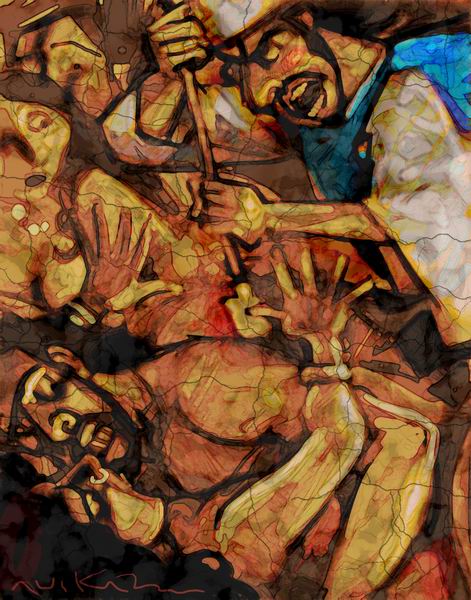6o years ago today, North Korean soldiers crossed the 38th parallel and began the Korean War – what has come to be called America’s Forgotten War. Oddly, by naming it the Forgotten War, it began to be remembered and that raises the larger questions of why we forget or remember events in our lives and in our history.
Do we forget because it’s too painful to recall? Perhaps it’s because the forgotten events simply have no meaningful place in our lives. After all, nothing is simply remembered for its own sake. With nothing to attach to in our ongoing lives, nothing can be remembered.
On the other hand, we are always free to create pegs in our current lives upon which to hang memories which we hope to preserve. But that just begs the question of why we feel compelled to create those pegs.
Ultimately memory is not simply a fact or reality, it is something to be created and pursued. And in many ways, so is forgetting. Which brings me back to Korea.
Why is it that a conflict that dragged on (why, by the way, do conflicts always “drag on”?) and ultimately costs 2 million lives, including the lives of 54 thousand US military personnel, went largely ignored and mostly forgotten for so many years? And why now are we returning to try and recall it with everything from national memorials to TV shows and books about “America’s Forgotten War”?
Could it be that with fewer and fewer WWII veterans around, we need new faces to fill out the picture of our nation’s past? Is it that the squeakiest wheel really does get the grease – that poised between the heroic victors of WWII and the angry voices about Viet Nam, the quiet soldiers who fought an ambiguous conflict with an ambiguous ending at a time when ambiguity was discouraged even more harshly than today, neither they nor we knew how to remember what happened?
Not only is memory an action, it is something we construct. We make choices not only about whether or not to remember, but the ‘what’ and ‘how’ of that which we recall. In fact, until we address the issues of what and how, it’s almost impossible to decide whether or not to recall something. So if we could not figure out in which conceptual box to place the war and its veterans, it was probably impossible to remember them.
Perhaps then there is a valuable lesson in remembering the Forgotten War. Perhaps the lesson is one which extends far beyond that historical event and into our own lives. Perhaps it’s about n\deciding to recall the little things, the quiet things, simply because they matter to us.
We should remember Korea neither because it was a marvelous victory over oppression, nor because in remembering we redress the challenges of a war that deeply divided our nation. We should remember Korea because of the human beings who fought and died there, whose lives were forever changed there.
In learning to remember the Korean War, we teach ourselves that people matter most and that the events of their lives should be recalled because we care about the people who lived them. It may have taken more than half a century to figure that out, but if that is the enduring lesson of learning to remember Korea, we will have learned much indeed.

